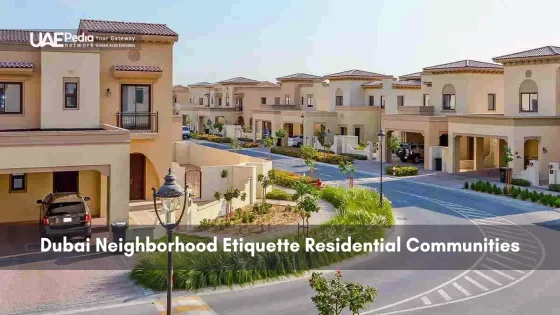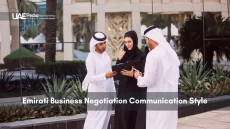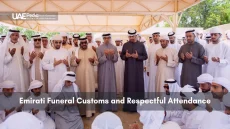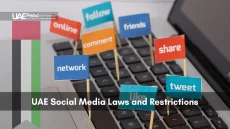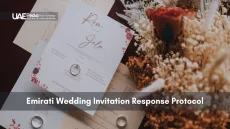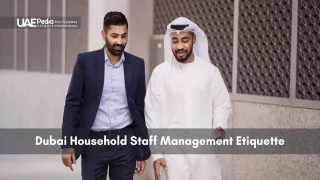Did you know over 80% of professionals in the Emirates’ corporate hubs work alongside colleagues from six or more countries daily? This isn’t just diversity—it’s a daily masterclass in cross-cultural connection.
In a region where skyscrapers meet Bedouin traditions, business thrives through adaptability. Morning meetings might blend Arabic coffee rituals with Silicon Valley efficiency. Afternoon emails could toggle between formal English and quick shukran thank-yous. Here, success isn’t just about what you know—it’s how you bridge worlds.
We’ve watched teams flourish by honoring local customs while embracing fresh perspectives. Simple gestures matter: learning basic Arabic phrases, respecting prayer times, or understanding the unspoken rules of a majlis discussion circle. It’s where East meets West—and where patience becomes as vital as spreadsheets.
This guide unpacks the unwritten rules shaping today’s corporate landscape. You’ll discover:
- How tradition and innovation coexist in daily operations
- Communication strategies that build trust across backgrounds
- Practical ways to foster team unity in mixed environments
Introduction to the UAE’s Multicultural Work Environment
Step into any office tower in Dubai or Abu Dhabi, and you’ll hear a symphony of accents before reaching the elevator. Over 200 nationalities contribute to the Arab Emirates’ economic engine, creating a professional landscape where South Asian tea breaks meet European project deadlines. This fusion isn’t just interesting—it’s the daily rhythm of progress.
Diverse Workforce Overview
Nine out of ten private-sector workers here hail from abroad. You’ll find:
- Tagalog chatter beside Hindi spreadsheets
- Design teams blending Bedouin patterns with futuristic tech
- Email sign-offs mixing inshallah (God willing) with “EOD” urgency
Adaptability isn’t optional. Employees who thrive here treat cultural fluency like Wi-Fi—essential for connection. We’ve watched teams bond over shared karak chai breaks while brainstorming global campaigns.
Understanding Business Culture and Traditions
Friday mornings whisper of mosque prayers, while Sunday meetings buzz with Monday energy. The secret? Balancing respect for Islamic traditions with Silicon Valley speed. One tech CEO told us:
“Our stand-ups honor prayer times—productivity soars when we honor both code and creed.”
Mastering local etiquette opens doors. A well-timed marhaba (hello) or understanding successful market entry strategy nuances can seal deals faster than any pitch deck. Traditions here aren’t relics—they’re living guides shaping handshakes, hierarchies, and happy hours.
Embracing Cultural Diversity in UAE Workplaces
Ever noticed how Ramadan shifts office rhythms? Lunch meetings become sunset iftar gatherings, and deadlines sync with moon phases. This blend of tradition and modernity defines professional life in the United Arab Emirates—where ancient customs shape modern teamwork.
Local Traditions: The Invisible Framework
Friday prayers influence meeting schedules. Coffee offerings mirror Bedouin hospitality. These aren’t quirks—they’re the glue holding teams together. One logistics manager shared:
“We adjusted project timelines around Eid—productivity jumped 30% that month.”
Religious events like Ramadan foster shared experiences. Teams bond over charity drives or communal meals, bridging gaps between Mumbai accountants and Emirati strategists.
CSR: Where Good Business Meets Good Deeds
Since 2018’s CSR law, companies here mix profit with purpose. Think hybrid initiatives:
| Traditional Practice | Modern Management | CSR Impact |
|---|---|---|
| Friday charity (zakat) | Corporate donation matching | 10%+ employee participation |
| Majlis discussions | Cross-department brainstorming | 20 ideas implemented yearly |
| Family-first values | Flexible parental policies | 85% retention rate |
The government nudges this balance. Tax incentives reward firms blending Islamic ethics with global standards. Diversity becomes strategy—multilingual teams craft campaigns resonating from Riyadh to Rome.
But here’s the secret sauce: individual stories. A Filipino designer suggesting henna-inspired logos. An Emirati intern teaching Arabic tech terms. When policies empower people to shine through their heritage, trust grows faster than Dubai’s skyline.
Implementing uae workplace collaboration cultural aspects
Ever walked into a meeting where three languages flow as smoothly as the coffee? That’s when communication becomes an art form. Teams here don’t just exchange ideas—they build bridges between worlds.
Effective Communication Strategies
Smart teams use simple tactics to stay connected. Try these:
- Morning huddles with visual aids for clarity
- Translation apps during brainstorming sessions
- Weekly “culture spotlights” sharing team traditions
One HR leader shared their success:
“Our language champions program cut email misunderstandings by 40% last quarter.”
| Communication Tactic | Implementation | Outcome |
|---|---|---|
| Multilingual memos | Key updates in 3 languages | 92% staff comprehension |
| Cultural workshops | Monthly 90-minute sessions | 67% fewer conflicts |
| Feedback circles | Anonymous suggestion system | 210 ideas implemented |
Inclusive Policies for Enhanced Teamwork
Great policies act like team glue. Top performers use:
- Mentorship pairings across experience levels
- Flexible holiday schedules honoring multiple faiths
- Skill-based advancement tracks
Training programs make these work. One logistics company saw 78% faster promotions after introducing bias-awareness sessions. Equal opportunities aren’t just fair—they’re smart business.
| Policy Type | Key Feature | Team Impact |
|---|---|---|
| Language support | Arabic/English coaching | 35% productivity boost |
| Prayer breaks | Flex-time adjustments | 91% satisfaction rate |
| Family support | Childcare partnerships | 62% retention increase |
Navigating Hierarchical Structures and Decision-Making
Picture a boardroom where decisions flow downward like sand through an hourglass—that’s the reality in many local firms. Traditional corporate pyramids here often concentrate authority at the top, creating both streamlined direction and occasional bottlenecks. Let’s unpack how these structures shape daily operations.
Senior Leadership and Decision Influences
In numerous companies, final approvals rest with C-suite executives—typically seasoned professionals with decades of industry knowledge. One finance manager noted:
“Our CEO reviews every major contract. It ensures alignment with long-term vision but adds layers to timelines.”
This approach offers stability but can slow innovation. Leadership teams often prioritize consensus, valuing institutional memory over rapid experimentation.
Challenges for Lower-Level Employees
Frontline staff frequently face invisible ceilings. Junior analysts might draft proposals that senior directors present as their own. Common hurdles include:
- Limited access to decision-makers
- Cultural expectations deferring to authority
- Slow upward feedback channels
Yet some firms are bridging gaps. A tech startup now hosts monthly “idea cafés” where interns pitch directly to executives. Such initiatives blend tradition with fresh thinking.
| Hierarchy Level | Decision Authority | Team Impact |
|---|---|---|
| Executive | Strategic direction | Company-wide |
| Middle Management | Departmental plans | Team alignment |
| Entry-Level | Task execution | Daily operations |
While clear roles prevent chaos, over-reliance on top-down mandates risks disengaging 72% of the population under 35. Forward-thinking leaders now balance tradition with mentorship programs that nurture tomorrow’s decision-makers—proving respect for hierarchy doesn’t mean stagnation.
Integrating CSR and Ethical Business Practices
Imagine a city where skyscrapers fund schools in desert villages—this is modern CSR in action. Since 2018’s CSR law, companies here blend profit with purpose, creating ripples that touch every corner of society. It’s not just compliance—it’s a cultural shift reshaping how businesses grow roots in communities.
CSR Law Impact and Company Initiatives
The 2018 mandate requires mid-sized firms to donate 2% of profits to social causes. But smart teams go beyond checks-in-boxes. A Dubai tech CEO shared:
“We match employee volunteer hours with paid time off—our staff literacy programs now reach 15 villages.”
| Traditional Approach | Modern Strategy | Community Impact |
|---|---|---|
| Annual donations | Skill-sharing partnerships | 1,200+ trained workers |
| One-off events | Ongoing development projects | 8 solar-powered clinics |
| Local sponsorships | Global cause alignments | 37% brand trust increase |
Maintaining Ethical Standards in a Diverse Setting
Diversity fuels innovation but demands cultural awareness. Teams navigate this by:
- Hosting ethics workshops blending global frameworks with local values
- Creating mixed committees to review supplier practices
- Translating sustainability reports into 5 languages
One retail chain’s “Green Fridays” initiative reduced plastic use by 62% while honoring regional weekend traditions. When businesses listen to multiple perspectives, they build bridges that last—proving good ethics and good business aren’t just neighbors. They’re roommates.
Leveraging Language Skills and Networking Dynamics
What if your next promotion hinged on saying “good morning” in three languages? In the Emirates’ buzzing professional arenas, linguistic agility often separates standout performers from the pack. Multilingual teams don’t just communicate—they code-switch between formal reports and casual shukran exchanges, turning potential hurdles into bridges.
Overcoming Language Barriers in Business
Mastering key phrases in Arabic or Hindi builds instant rapport. One tech startup boosted client retention by 25% after training “language champions” to decode regional dialects. Try these tactics:
- Swap jargon-heavy emails for visual workflows
- Host bilingual brainstorming sessions
- Use translation apps during coffee breaks
A Dubai HR manager shared:
“Our weekly Arabic crash courses reduced miscommunications by half—now even our French interns order karak chai like locals.”
Building and Nurturing Professional Networks
Strong connections thrive on more than LinkedIn requests. Attend industry majlis gatherings where deals unfold over dates and cardamom coffee. Top networkers:
| Strategy | Action | Result |
|---|---|---|
| Cross-cultural breakfasts | Monthly team mixers | 40% partnership growth |
| Skill-exchange programs | Language tutoring swaps | 68% engagement boost |
| Local mentorship | Emirati business guides | 3x faster market entry |
One marketing director landed a major contract by simply attending a Ramadan charity event. As PeopleHum’s research shows: face-to-face interactions here build trust faster than any virtual pitch. When you blend language skills with genuine curiosity, every handshake becomes a gateway.
Promoting Diversity, Inclusion, and Women Empowerment
Meet Sarah Al Amiri—the tech visionary who helped launch Mars probes while reshaping perceptions of Arab women in STEM. Her story isn’t unique here. Over 30% of senior roles in the Emirates’ private sector now belong to women, a figure tripling since 2015. This shift reflects bold policies meeting evolving cultures.
Success Stories of Women in UAE Business
From fintech startups to construction giants, female leaders thrive. Take Noora Al Mansoori, who scaled her e-commerce platform during maternity leave using government-backed remote work tools. Or Indian expat Priya Sharma, whose AI firm secured Emirati seed funding after joining a women-led accelerator program.
“Our board now asks not ‘Can she lead?’ but ‘How soon can she start?’”
- First female judges appointed in 2020
- 50% female representation in federal council roles
- 30+ women’s business networks established since 2018
Government and Company Support for Equal Opportunities
Flexible work laws and parental leave reforms anchor progress. Key initiatives:
| Initiative | Impact |
|---|---|
| Gender Balance Council | 73% pay gap reduction |
| Mentorship matching | 2x promotion rates |
| Hybrid work mandates | 89% retention boost |
Cultural awareness training helps teams navigate change. One multinational reported 40% fewer conflicts after workshops explaining regional traditions. As recent studies show, blending global standards with local insights creates spaces where all talents flourish.
Diverse teams here don’t just coexist—they spark ideas at tech events and design cultures-focused solutions. When women lead, opportunities multiply like desert flowers after rain.
Wrap-Up: Strategies to Enhance UAE Workplace Collaboration
Picture teams transforming differences into rocket fuel for innovation—that’s today’s recipe for success. Three strategies stand out:
First, blend leadership vision with ground-level insights. Companies doubling mentorship programs see 40% faster decision-making. Train managers to spot hidden talents during coffee chats or majlis meetings.
Next, make policies work harder. One logistics firm boosted engagement 58% by aligning CSR initiatives with staff passions. Government incentives now reward businesses mixing ethics with agility—like flex-time for charity work.
Finally, treat every interaction as bridge-building. Bilingual training reduces missteps, while cultural “exchange hours” spark fresh perspectives. As workforce dynamics evolve, the real magic happens when spreadsheets meet shared karak chai breaks.
Ready to rewrite your playbook? Start small: map team traditions, audit meeting rhythms, then pilot one inclusive strategy this quarter. Progress here isn’t a sprint—it’s a mosaic crafted daily by people bold enough to listen, adapt, and grow.
Senior leaders often drive major decisions, reflecting the region’s respect for experience. Younger employees can contribute by building trust through formal channels like structured proposals or informal networking during coffee meetings (gahwa sessions). Brands like Emirates Group and ADNOC blend tradition with agile feedback loops.
Initiatives like the National Tolerance Program and Dubai’s Gender Balance Council mandate inclusive hiring. Free zones like DIFC and ADGM require CSR reporting, while entities such as Dubai Cares partner with firms to fund education projects—turning policy into community impact.
While English dominates business settings, learning Arabic phrases like “shukran” (thank you) builds rapport. Companies like Careem and Chalhoub Group offer language courses, and tools like Microsoft Teams’ real-time translation bridge gaps during hybrid meetings.
p>A: From Sheikha Lubna Al Qasimi’s tech diplomacy to Raha Moharrak’s Mount Everest climb, Emirati women lead across sectors. Mubadala’s female mentorship programs and Dubai’s 30% board membership target for women amplify access—proving ambition thrives when support systems align.
Absolutely. Emirates Red Crescent’s employee volunteer days or DP World’s sustainability hackathons unite teams around shared goals. These efforts foster camaraderie while addressing issues like food security—a win-win for company culture and societal impact.
Attend industry majlis events or expo meetups like GITEX Global. Prioritize face-to-face rapport before diving into deals—think of it as building a “wasta” (influence) foundation. Apps like LinkedIn and Bayt.com help, but nothing beats a firm handshake and personalized follow-up.


